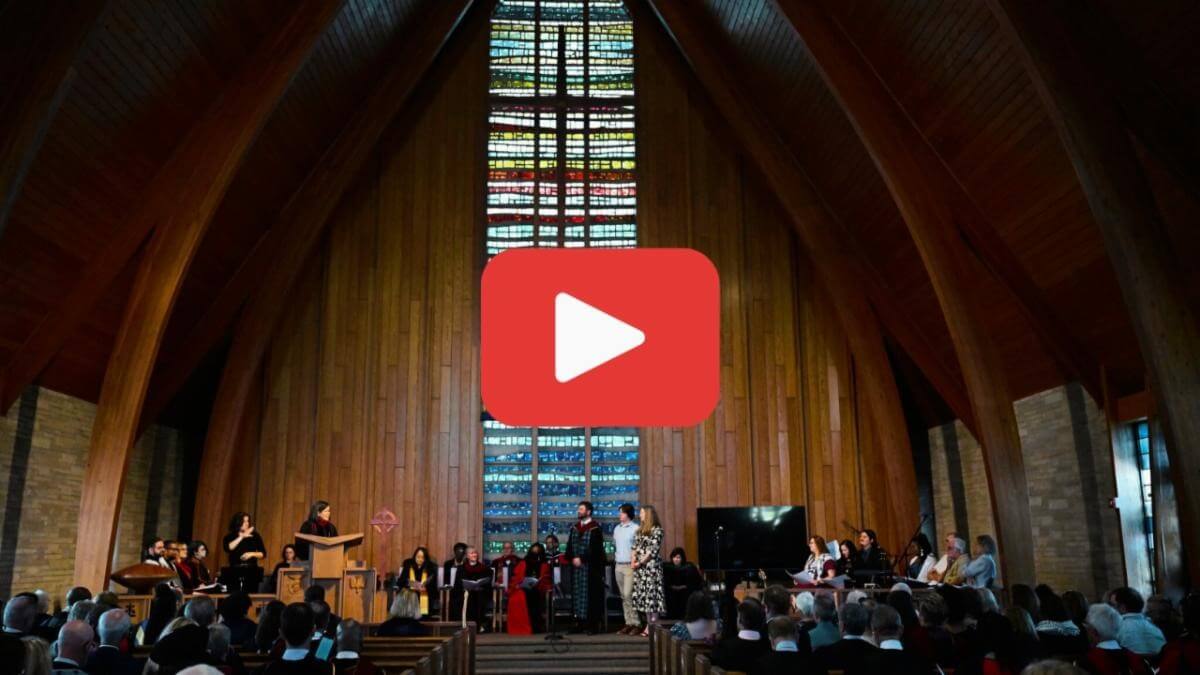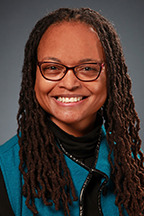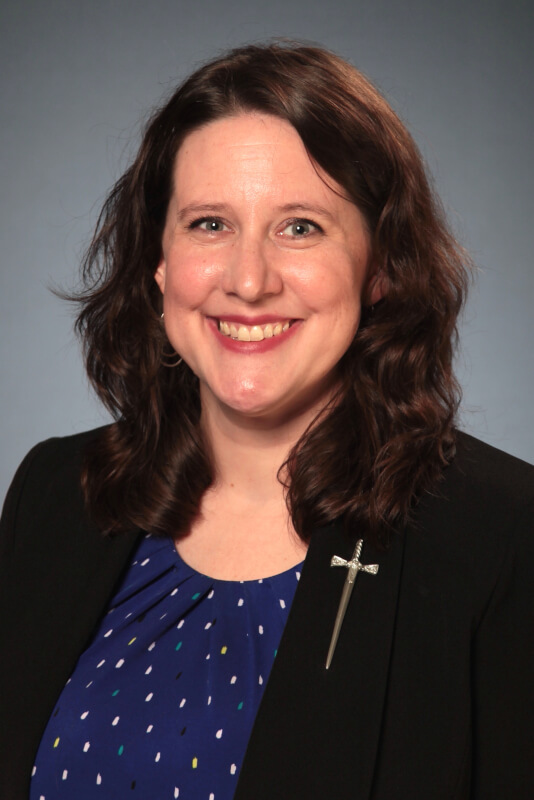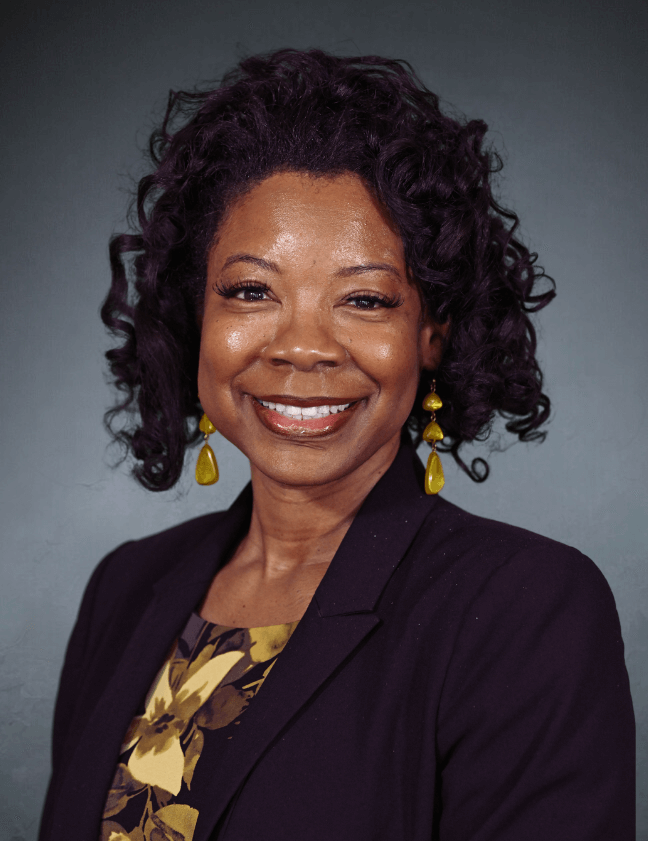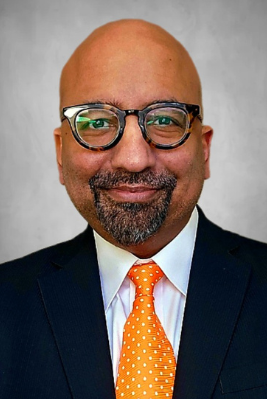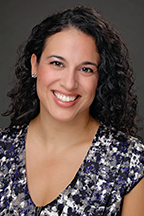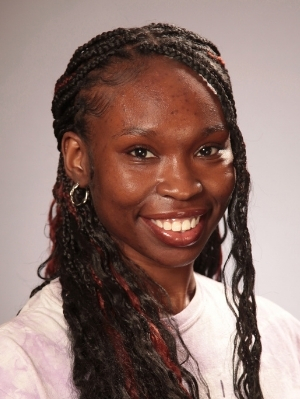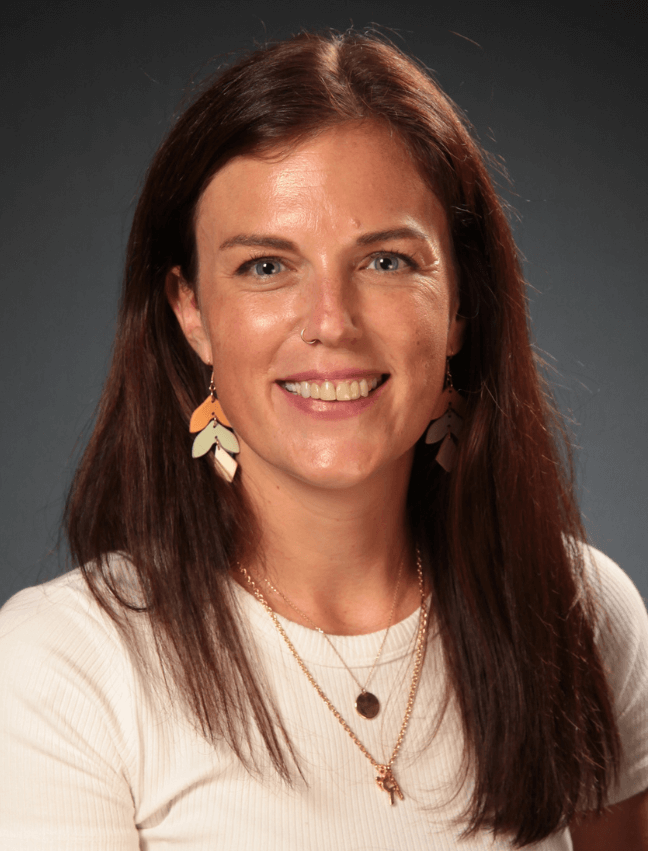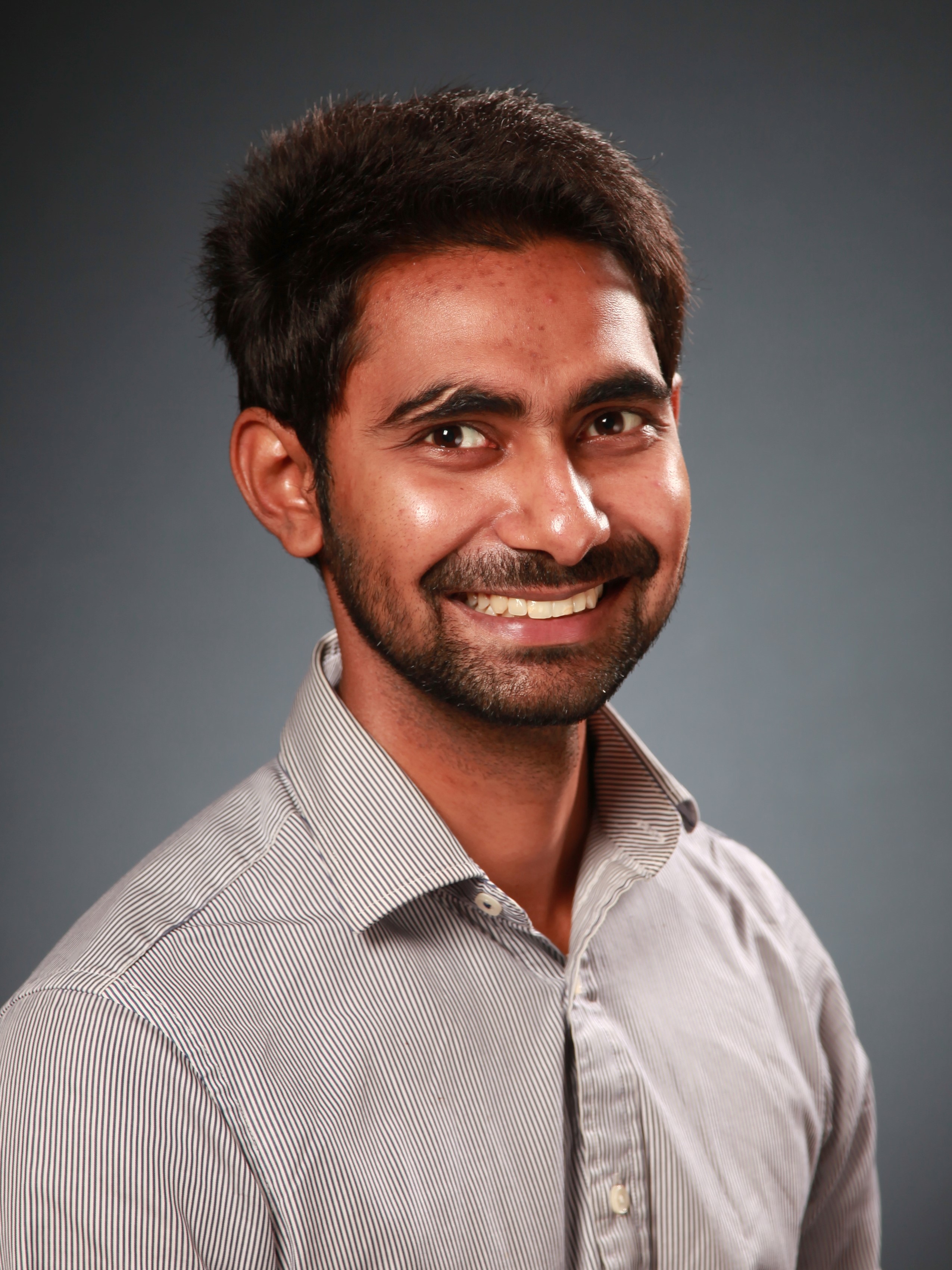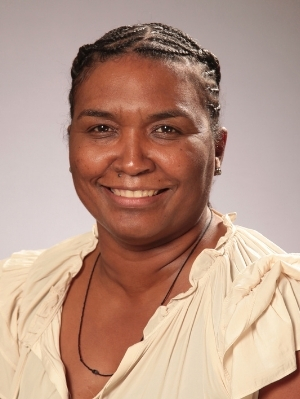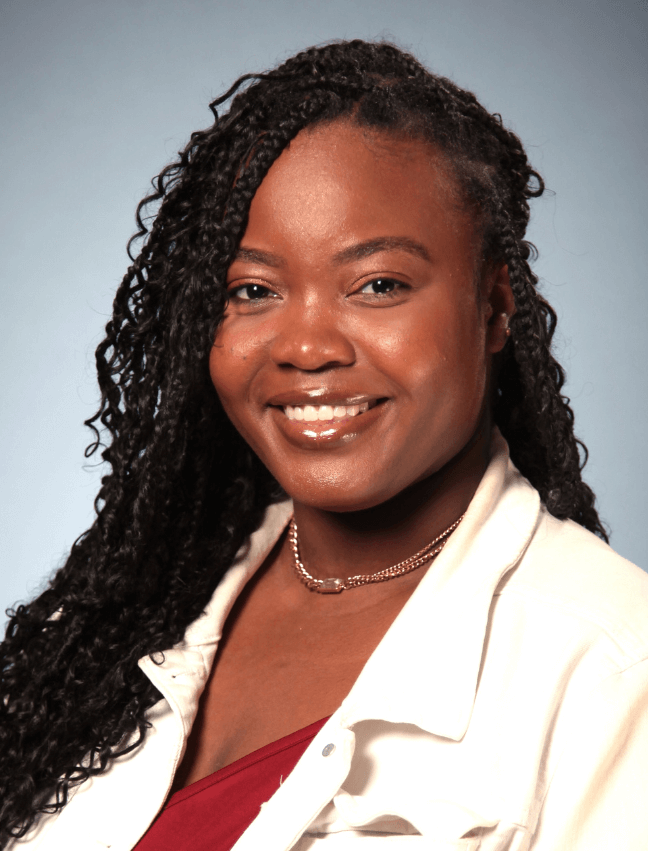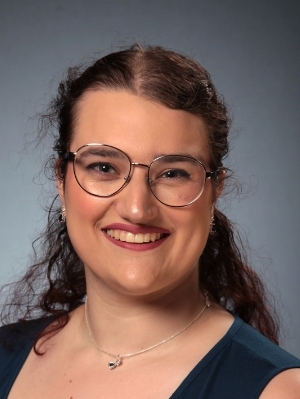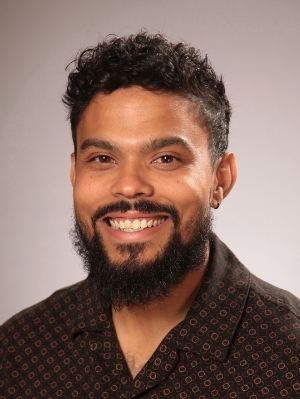Leadership at LPTS
A MESSAGE FROM PRESIDENT ANDREW POMERVILLE
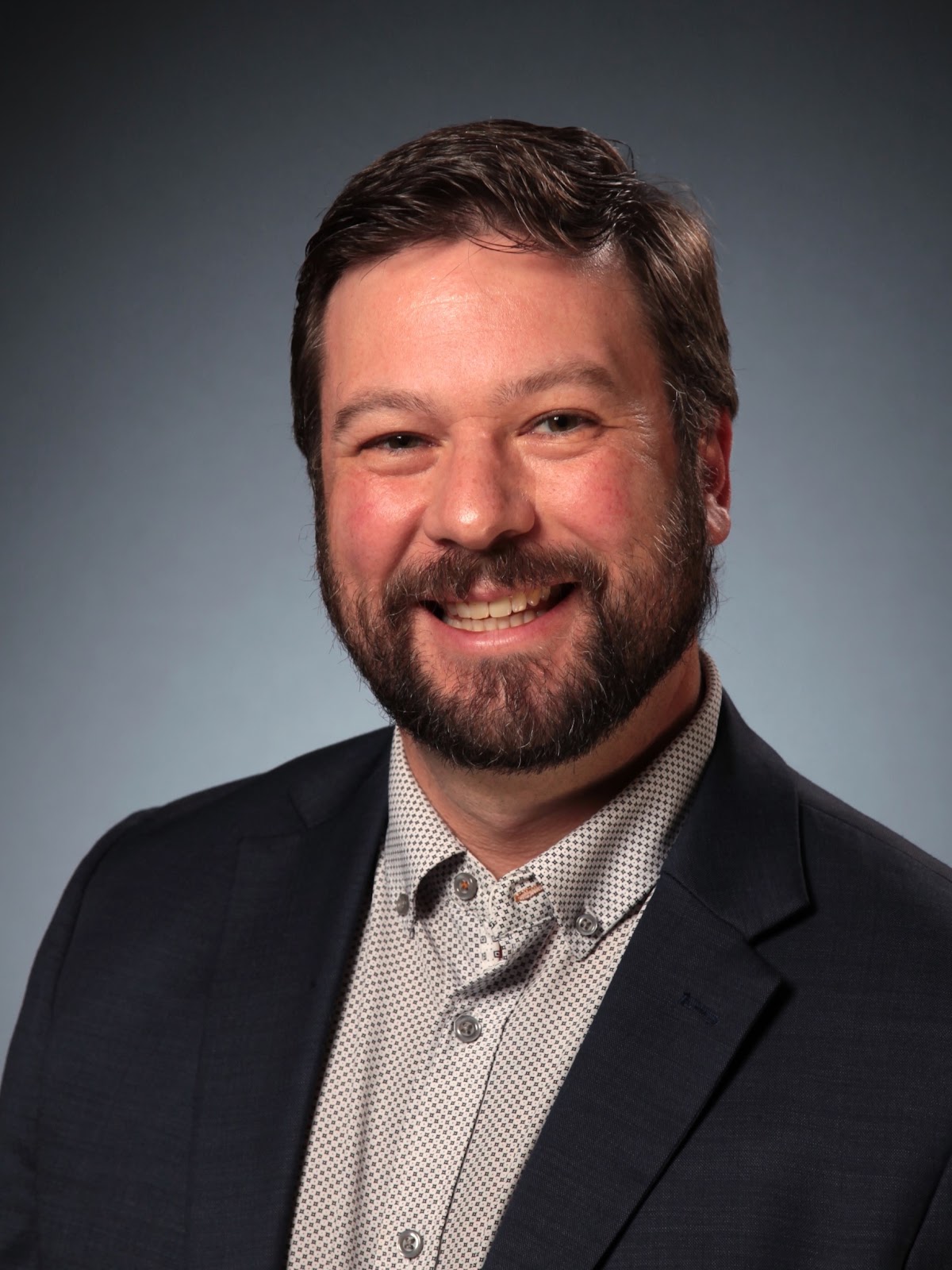
Louisville Seminary is the leader in theological education surrounding issues of justice, community, and compassion. Together, we share an enormous responsibility for continuing the transformative “Whosoever” community ethos that permeates through the campus and spills courageously into the world locally, nationally, and abroad.
Bold and brave innovation must be deeply rooted in the next chapter of our seminary's institutional saga with an eye toward the future needs of all of God's people. In order to strengthen the “Whosoever” community, we will listen sincerely to the desires and fears of the campus and create partnerships that commit to sustainable, ongoing relationships built on trust, love and grace.
LPTS does not exist for itself to self-perpetuate. We must, first and foremost, be guided by the Holy Spirit in the mission, to educate people to proclaim the Gospel, care for all, and work for justice in communities everywhere.
Watch | Program | View Photos
The Inauguration and Installation of The Rev. Dr. Andrew D. Pomerville, as the eleventh president of Louisville Seminary, marks a new chapter in the rich 171-year history of our beloved institution. President Pomerville's address titled "Therefore" is based on Ecclesiastes 4:9-12 and Romans 12:3-8.
Cabinet Leadership
The President meets regularly with senior administrative officers: the Dean of the Seminary, the Vice President for Finance and Operations, Vice President for Enrollment and Student Success, the Vice President for Advancement, the Vice President for Communication and Brand Management. and the Executive Director of the Louisville Institute.
The primary purposes of these meetings are to facilitate communication among the five major areas of the Seminary and the Louisville Institute and to provide a forum for mutual exchange, support, and encouragement.
Debra Mumford
VP for Academics; Dean of the Seminary;
Frank H. Caldwell Professor of Homiletics
Email Debra
Student Body Representatives
Callan Kennedy
Student Body President
Christopher Stewart
Student Body Clerk
Sabrina Acheampong
Student Body Representative
Meg Buckner
Student Body Representative
Aqil Javed
Student Body Representative
Eva Rivera Lebron
Student Body Representative
Harley Mathews
Student Body Representative
Christella Philippe
Student Body Representative
Margaret Velto
Student Body Representative
Ryan Walker
Student Body Representative
Title IX Coordinator
Title IX prohibits schools, colleges, and universities that receive federal funds from discriminating based on sex—whether in the form of different treatment, or hostile educational environment created by sexual harassment or assault. The Title IX Coordinator oversees all aspects of Louisville Presbyterian Theological Seminary’s (LPTS) compliance with Title IX, including policies and procedures related to sexual misconduct and other forms of sex discrimination, coordinating the training of students, faculty and staff, and ensuring that assault survivors have access to appropriate resources and support.
LPTS prohibits all forms of sex discrimination and sexual misconduct. The Title IX Policy details the Seminary’s procedures in ensuring that students and employees are protected against unlawful acts of sexual violence, sexual harassment, sexual exploitation, domestic violence, dating violence, stalking, and other forms of gender-based discrimination.
Click on the link below to review the Title IX policy which is in alignment with the Department of Education, legal requirements of our state, and the vision of our life together. You may also click the following links to review the training materials (Alternative Resolutions Open Training January 23, 2024, Open TIXC January 2024, Pregnant and Parenting Open Training January 2024), that our Title IX Coordinators have received.
Reporting Options
Any person may report sexual misconduct, including sexual harassment, in person, by mail, by phone, or by email.
Alicia Anderson
HR Generalist and Title IX Coordinator
Louisville Presbyterian Theological Seminary
1044 Alta Vista Road
Louisville, KY 40205-1798
502-992-9356
Email Alicia
Blaze Bowers, J.D.
Single-matter Acting Title IX Coordinator
650-383-4753 x188
Email Blaze
Governance
The manner in which the Seminary community governs itself exhibits how important each person’s contribution is to the interdependent working of the community. Constitutional authority for the governance of the Seminary rests with the Board of Trustees, which has delegated certain governance responsibilities to the faculty.
The oversight of the immediate operation of the Seminary is provided by the faculty and various offices of the administration. The faculty exercises certain of its responsibilities through a Seminary Plan of Governance, which includes members from all parts of the community, including students’ spouses, who meet in standing committees to take on community, church, and wider world issues and offer recommendations to the decision-making body called the Seminary Council. The Council includes members of the faculty, some administrators, staff representatives, and students elected by the student body.
The Seminary Council has approximately one student member for every two faculty members. There are five standing committees that help the community remain faithful to God’s call in the community and the world: the Academic Committee; Christian Life Committee; Community Affairs Committee; Committee on Cultural and Religious Diversity; and the Gender and Ministry Committee. These committees and their task forces are responsible for the many social activities and learning experiences that bind together the people of God.
Board of Trustees
The management and control of Louisville Presbyterian Theological Seminary is vested in its Board of Trustees, an elected body of up to 37 members. The Trustees give oversight to the operations of the Seminary through shared governance with the Seminary President and its faculty. The Trustees elect the President and faculty and confer degrees. The Board of Trustees has responsibility for the policies governing all aspects of Seminary life.
The Board of Trustees meets twice each year for two to three days. The work of the Board is accomplished through its committees, including the following standing committees: Executive, Academic Affairs, Finance, Advancement, Audit, Governance, and Community Life.
For information about the Board of Trustees and its membership contact the Office of the President.
Board Members
Officers of the Board
- Chair, Elizabeth Clay
- Secretary, Lisa Allgood
- Secretary, Glen Bell
Honorary Life Members
- Lant B. Davis, Birmingham, Ala.
- Bari Johnson, Spring Lake, Mich.
- Robert L. Reed, Cincinnati, Ohio
- Dorothy (Dot) Ridings, Louisville, Ky.
- Suzanne W. Whaley, Naples, Fla.
Trustees
- Beth Adams, Birmingham, AL
- Melissa Allison, Ann Arbor, MI
- Lisa D. Allgood, Cincinnati, OH
- Glen Bell, Louisville, KY
- Elizabeth Clay, Louisville, KY
- Laurie L. Deacon, Gates Mills, OH
- Jamesetta Ferguson, Louisville, KY
- Michael Gilligan, Columbus, OH
- Lyle S. Hanna, Lexington, KY
- Clemette Haskins, Frankfort, KY
- Lara Hauser, Mequon, WI
- Troy Hauser-Brydon, Grand Haven, MI
- Ashley A. Hicks, Columbus, OH
- Tim Malone, Louisville, KY
- Patricia Maloney, Huntsville, AL
- Amariah McIntosh, Bowling Green, OH
- Katherine Nyberg, Birmingham, MI
- Tanner Pickett, Montreat, NC
- Andrew D. Pomerville, Seminary President, Louisville Seminary (official July 1, 2023)
- Jay Summerville, Clayton, MO
- Lee Walthall, Birmingham, AL
- Polly Williams, Waxahachie, TX
- Jim Wilson, Columbus, OH
Seminary Council
The Seminary Council consists of all faculty, 10 students, the Staff Moderator and an additional representative from the staff, the Vice President for Finance and Administration, the Vice President for Advancement, the Director of the Library, the Registrar, the Dean of Community Life, the Director of Recruitment and Admissions, the Executive Director of the Louisville Institute, the Associate Director of the Louisville Institute, the Coordinator of Academic Support Services, the Director of the Marriage and Family Therapy Program, the Director of Clinical Training, the Director of the Doctor of Ministry Program, and the Director of Field Education; all of these Council members have voice and vote.
The areas of responsibility of the Seminary Council are spelled out in the Plan of Governance. They involve specific responsibility for the MDiv, MAR, and MFT curricula and community life.
The President, the Dean, or the President of the Student Body presides.
Faculty Council
The primary responsibilities of the Faculty Council include the review of students; changes in the MDiv, MAR, and DMin curricula; the hiring, periodic review, and promotion of faculty, including adjunct and visiting faculty; review of sabbatical proposals and reports; and meeting accreditation requirements of recognized accrediting agencies for all academic programs. Tenured faculty members have oversight of the hiring and promotion of faculty members. (Some of the foregoing actions require approval by the Board of Trustees; see By-Laws for details.)
The faculty normally meets at the conclusion of the Seminary Council meetings or upon call of the President. The President presides at faculty meetings; in the absence of the President, the Dean presides.
Administrative and Staff Council
The Administrative and Staff Council is composed of all administrative members of the Seminary. Its purposes are to provide communication within the administration, to identify emerging problems or issues to be addressed, and to offer education about the intersecting areas of the Seminary’s life. It normally meets once a month during the academic year, and the President presides.
LPTS Partners
Denominational Partners
Special Partners
Accrediting Agencies
- Association for Clinical Pastoral Education (ACPE)
- Association of Theological Schools (ATS)
- American Association for Marriage and Family Therapy (AAMFT)
- Commission on Accreditation for Marriage and Family Therapy Education (COAMFTE)
- Southern Association of Colleges and Schools Commission on Colleges (SACS/COC)
Consortia
Degree Program Partners
Cooperative Relationships
- Overseas Ministries Study Center (OMSC)
- Christian Medical College, Vellore, India
- Institut Prostestant de Théologie, Montpellier, France
- Presbyterian College and Theological Seminary, Seoul, Korea
- Myanmar Institute of Theology, Insein, Myanmar
- Sarospatak Reformed Theological Seminary, Rakoczi, Hungary
- Tahan Theological College, Tahan-Kalemyo, Myanmar

